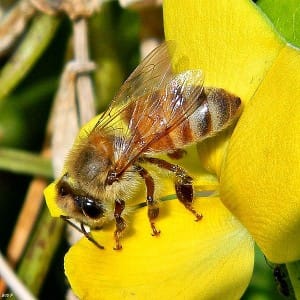 Two major New Zealand retailers have moved to stop stocking a controversial group of insecticides over claims they harm bees.
Two major New Zealand retailers have moved to stop stocking a controversial group of insecticides over claims they harm bees.
Green MP Steffan Browning wrote to gardening companies this year asking them to stop selling products containing the chemical group neonicotinoids, typically found in bug and flower sprays.
It followed a decision by the European Commission to impose restrictions on three compounds of the chemical, for applications in cereals and bee-attractive crops.
Placemakers has since opted to stop selling neonicotinoid products while scientific studies on the widely-used chemicals are ongoing.
The Warehouse has also decided against stocking three products after its own investigation. The company would not place any new orders of the products, and existing stocks would be sold before December, when European restrictions come into force.
“It definitely has a financial impact, but we are referring customers to a range of other products we have that are similar, but not as toxic to bees,” The Warehouse environment support manager Greg Nelson said.
Mr Browning hoped other stores would follow their lead.
“The issue of bee health is critical for New Zealand as an agricultural nation,” he said. “We need bees to pollinate our fruits, vegetables and even the grasses that our dairy cows eat.
“Without a healthy bee population, our very food supply is at risk.”
He also called on the Government to fund a study of bee health to establish what New Zealand had to do to better protect them.
“But in the meantime there is plenty that home gardeners can do to help and the first step is to not use chemicals in their gardens that are linked to hurting our fragile bee populations.”
National Beekeepers’ Association chief executive Daniel Paul applauded the move.
“However, we also recognise that it’s not feasible for every stockist of garden sprays to do what they are doing.”
Gardeners could minimise harm to bees by not spraying flowering plants or during the day.
Despite the moves in Europe, Mr Paul had seen no hard evidence in New Zealand that the sprays were affecting bees, though there had been anecdotal reports.
“The evidence suggests there are a range of effects, and the association would like to see more work done.”
Neonicotinoids
Neonicotinoid pesticides, introduced to New Zealand in the 1990s, are now one of the main crop pesticides in the world.
According to industry body Agcarm and the National Beekeepers’ Association, there has been no evidence of the products having had direct adverse effects on New Zealand bee populations.
But the chemicals have become particularly controversial after the European Commission restricted their use.
Contrary to some claims around the world, agriculture industry group Agcarm states the chemicals are not contributing to declining bee rates.
The group said the chemicals had been used well before the destructive varroa mite was identified here in 2000, and although feral bee numbers had been decimated, managed bee hive numbers had increased by 40 per cent between 2005 and 2013.
The post Retailers Pull Insecticides Deemed Harmful to Bees appeared first on Cornucopia Institute.